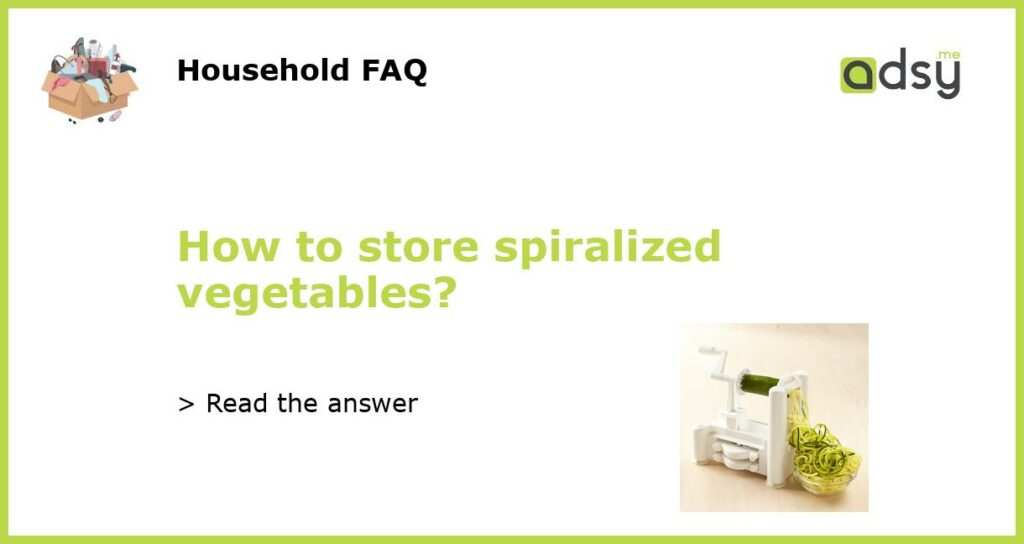The Trend of Spiralizing Vegetables
Spiralizing vegetables has become a popular trend in recent years. This technique involves using a spiralizer to create long, noodle-like strands from various types of vegetables, such as zucchini, sweet potato, and carrots. Spiralized vegetables are not only visually appealing, but they also offer a healthier alternative to traditional pasta dishes. However, once you have spiralized your vegetables, it’s important to store them properly to maintain their freshness and texture. In this article, we will explore different methods and tips for storing spiralized vegetables.
Storage in the Refrigerator
The refrigerator is the most common place to store spiralized vegetables. To store spiralized vegetables in the fridge, follow these steps:
- First, make sure the spiralized vegetables are dry. Excess moisture can lead to spoilage.
- Place the spiralized vegetables in an airtight container or a zip-top bag.
- If using a zip-top bag, remove as much air as possible before sealing to preserve freshness.
- Label the container or bag with the date to keep track of freshness.
- Store the container or bag in the refrigerator for up to 3-5 days.
By storing spiralized vegetables in the refrigerator, you can extend their shelf life and maintain their quality for a few days.
Freezing for Long-Term Storage
If you have a large batch of spiralized vegetables that you want to store for a longer period, freezing is a great option. Follow these steps to freeze spiralized vegetables:
- Blanch the spiralized vegetables by immersing them in boiling water for a few minutes. This helps preserve their color and texture.
- Drain the blanched vegetables and immediately transfer them to an ice bath to stop the cooking process.
- Once cooled, pat the vegetables dry to remove excess moisture.
- Divide the spiralized vegetables into meal-sized portions and place each portion in a freezer-safe bag or container.
- Label the bags or containers with the date and type of vegetables.
- Remove as much air as possible before sealing the bags or containers.
- Store the spiralized vegetables in the freezer for up to 3-6 months.
Freezing spiralized vegetables is a convenient way to have them on hand for quick and easy meals in the future.
Tips for Maintaining Freshness
Whether you store your spiralized vegetables in the refrigerator or freezer, there are a few additional tips to help maintain their freshness:
- Avoid storing spiralized vegetables near fruits that produce ethylene, such as apples or bananas. Ethylene can cause vegetables to ripen and spoil more quickly.
- Do not wash the spiralized vegetables until you are ready to use them. Washing them in advance can introduce moisture, leading to spoilage.
- If storing in the refrigerator, keep the container or bag away from the back of the fridge, where temperatures tend to fluctuate more.
- Consider using vacuum-sealed bags or containers to further extend the shelf life of spiralized vegetables.
Following these tips will help ensure that your spiralized vegetables stay fresh and delicious.
Creative Ways to Use Stored Spiralized Vegetables
Now that you know how to store spiralized vegetables, let’s explore some creative ways to utilize them in your meals:
- Toss spiralized zucchini with tomato sauce for a low-carb alternative to spaghetti.
- Add spiralized sweet potatoes to stir-fries or salads for a sweet and savory twist.
- Use spiralized carrots in coleslaw or as a crunchy topping for sandwiches.
- Sauté spiralized butternut squash with garlic and herbs for a tasty side dish.
- Blend spiralized beets into smoothies for a vibrant and nutritious boost.
With stored spiralized vegetables, the possibilities are endless when it comes to creating healthy and delicious meals.






